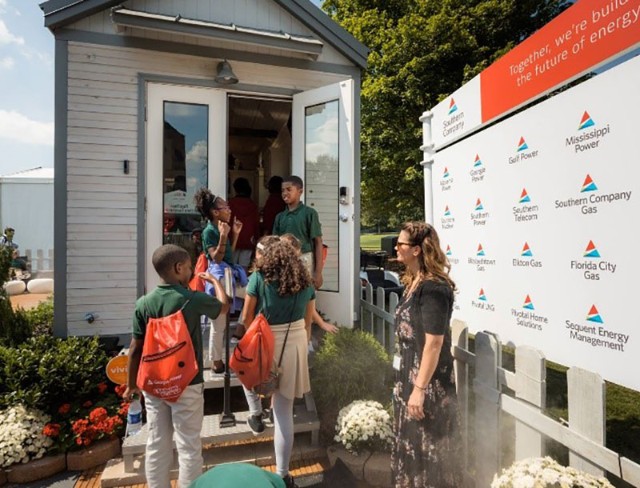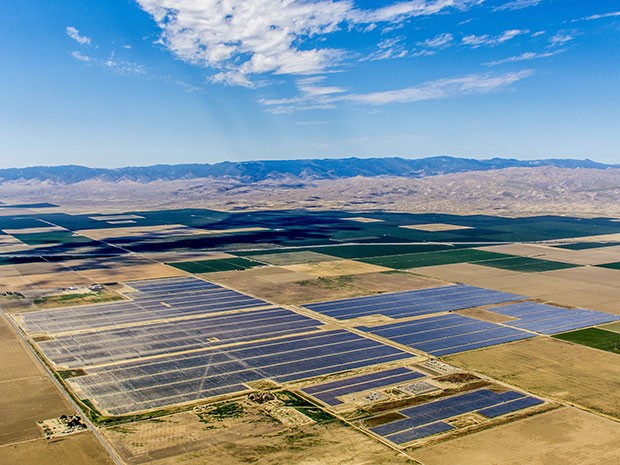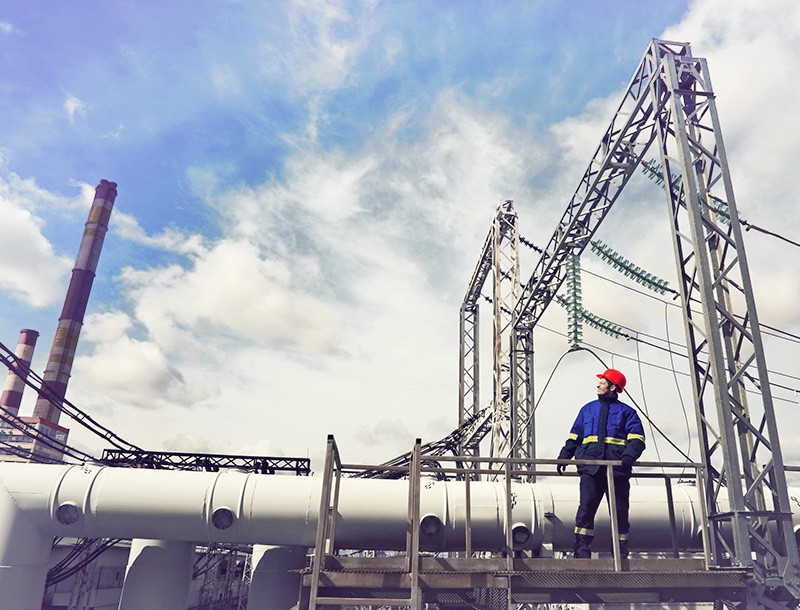Pipelines
As a pipeline operator, Southern Company Pipelines adheres to federal, state, and local pipeline safety regulations; performs extensive quality control checks; educates those working or living near the pipelines on how to prevent pipeline damage, and how to recognize and react to a suspected pipeline leak; and works closely with emergency responders and public officials to minimize the hazards. We operate nine natural gas pipelines located across Alabama, Georgia, and Mississippi, and one landfill gas pipeline located in Tennessee.
Information about the transmission pipelines operating in your community can be accessed online at npms.phmsa.dot.gov, courtesy of the National Pipeline Mapping System (NPMS).
Southern Company Pipelines Integrity Management Program.
Please save our natural gas pipeline EMERGENCY number, 844.357.4656, and call us if you ever think we may have a pipeline emergency.
If you have a question or concern about activity which might affect the pipeline right-of-way, please contact us at 844.810.2398 or g2socopipelines@southernco.com.
Feel free to contact a member of our team directly.
Emergency Response Information and Training or Pipeline Safety Club Information
Anathea Dortch
678-899-9292
EMERGENCY RESPONSE
Please save our natural gas pipeline EMERGENCY number, 844.357.4656, and call us if you ever think we may have a pipeline emergency.
We recognize the importance of building strong relationships with the emergency responders in communities where we operate. Each year, we provide emergency responders with information that includes our priority to always put the safety of the public first, guidelines on how to assess and respond safely to an emergency on our pipeline, emergency contact information, and the availability of emergency training and drills. Working together with emergency responders helps to mitigate incidents and prepares us to respond quickly and efficiently in the event of a pipeline emergency.
If you would like more information regarding our pipelines or would like to request pipeline emergency training, please email us at g2socopipelines@southernco.com or contact Anathea Dortch directly.
Pipeline Emergency Responders Initiative (PERI) Training
Per PHMSA, improving communication between emergency responders and pipeline operators nationwide is an important component of pipeline safety. The PERI was conceived as a way to strengthen relationships among the various stakeholders involved with pipeline safety and emergency response, as well as to spur the development and implementation of enhanced pipeline emergency response training.
Communication between emergency responders and pipeline operators is an important component of pipeline safety nationwide. The Pipeline and Hazardous Materials Safety Administration (PHMSA) conceived PERI as a way to strengthen relationships among the various stakeholders involved with pipeline safety and emergency response, as well as to spur the development and implementation of enhanced pipeline emergency response training.
Currently Alabama and Georgia have active state PERI programs which offer comprehensive pipeline emergency response training to emergency responders free of charge. The flexible training can be scheduled when and where it is most convenient for your department.
For more information, visit their websites.
Alabama Pipeline Emergency Response Initiative (APERI)
Georgia Pipeline Emergency Response Initiative (GPERI)
Tennessee (TN-PERI) will have training available in 2024.
Mississippi does not yet have a program, but a committee has been formed to start the process.
LEAK RECOGNITION AND RESPONSE
Although gas pipeline incidents are uncommon, you should know how to recognize a potential pipeline emergency. The information below will assist you in identifying a potential pipeline emergency.
If you:
SEE: Blowing dirt, oddly discolored vegetation, or continued bubbling in standing water may indicate a leak.
HEAR: The hissing or roaring sound of high-pressure natural gas escaping may indicate a leak
SMELL*: The distinctive, rotten-egg odor associated with odorized natural gas.
Do the following:
LEAVE the area immediately
WALK AWAY upwind from the potential leak
DO NOT attempt to repair any damage yourself
AVOID using any source of ignition, such as lighters, matches, motorized vehicles, or even electronic devices like your cell phone until you are a safe distance away.
CALL our pipeline emergency number 844.357.4656 or 911 once you are a safe distance away from the area.
STAY AWAY until Southern Company Pipelines or emergency personnel indicate it is safe to return.
*Note: Do not rely solely on sense of smell. Be aware that some individuals may not be able to detect the odorant because they have a diminished sense of smell, olfactory fatigue, or because the odor is being masked by other odors in the area. Certain conditions may cause the odorant to diminish so that it is not detectable. Some gas pipelines may not have odorant added, so escaping gas may not have an odor at all.
CALL OR CLICK BEFORE YOU DIG
The biggest threat to the safety of our pipeline is excavation activity. It is important that you and those in your company who may dig or excavate are well informed about excavation safety, because even the smallest pipeline damage can have severe consequences.
If you plan to do any digging near one of our pipelines, remember to Call or Click before you dig by calling 811 or visiting your state’s website:
- Alabama 811 https://www.al811.com/
- Mississippi 811 https://www.ms811.org/
- Georgia 811 https://www.georgia811.com/
- Tennessee 811 https://www.tenn811.com/
Common Ground Alliance Best Practices
If our pipeline is ever hit during excavation, even if the damage appears minor, such as a small scrape, nick or dent, it is imperative that Southern Company Pipelines be notified as soon as possible. Seemingly insignificant damage to a pipeline’s protective coating can lead to severe consequences later.
To report any damage to our pipeline, please call our 24-hour natural gas pipeline emergency number 844.357.4656.



